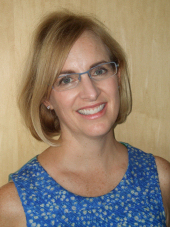Diane Cote, LCSW
Specialist in Reproductive Health & Fertility Counseling
Offices in San Mateo and San Francisco, California
BIO: Diane Cote is a psychotherapist specializing in reproductive health and mindfulness based psychotherapy. She has been in private practice for over 15 years. Her treatment orientations include psychodynamic, mindfulness based cognitive-behavioral therapy, and yoga therapy, which includes meditation and working with the breath. She received her Masters degree in Clinical Social Work from Boston University. She has completed post graduate training through the American Society for Reproductive Medicine on areas specific to infertility counseling and numerous issues related to reproductive health including ethical issues and mind body influences on fertility. She has studied at the Domar Center for Mind-Body Health, the Esalen Institute and the EMDR (Eye Movement Desensitization and Reprocessing) Institute. She is currently pursuing yoga teacher training and will be a certified yoga teacher in June, 2015. She will offer Yoga for Fertility retreats for women and couples with an emphasis on self-care and mindfulness based practices. Diane has a twenty-five year yoga and mediation practice. For more information, please visit Diane’s website: http://dianecotelcsw.com.
The interview consists of the following questions:
1.) You are an expert in “reproductive health and fertility counseling.” Could you briefly explain what that is?
2.) What are the “issues around fertility?”
3.) Do you give guidance or recommendations regarding medical treatment options for infertility?
4.) How does culture impact this whole process when it comes to dealing with infertility?
5.) In addition to general fertility counseling, you are also known as a specialist in “third party reproduction” — can you talk about that?
6.) What are the specific tools you use when working with patients who are struggling with infertility?
7.) What is the greatest barrier to individuals or couples pursuing fertility counseling?
8.) What is your typical treatment process when working with clients with infertility?
9.) How might your approach differ from other therapists that provide fertility counseling and coaching?
10.) How did you become interested in fertility counseling?
11.) What is one of your greatest joys from your work?
12.) What are some good Infertility Resources for folks to learn more?
1.) Kim Pratt (KP): You are an expert in reproductive health & fertility counseling. Could you briefly explain what that is?
Diane: A clinical diagnosis of infertility is defined as trying to conceive over a 12 month period without success. Approximately 35% of the time it’s a female problem and 35% it’s a male problem. The remaining 30% percent is either a problem related to both the male and female, or what is known as “unexplained infertility.”
I work with couples who have reached that one-year mark, (and well beyond), and have received a formal diagnosis of infertility from a reproductive endocrinologist. After failed attempts to conceive after one year, coupled with an infertility diagnosis, clients start to experience more serious, emotional symptoms. That’s where I come in as a fertility counselor.
Anxiety, depression, and relationship challenges are common with infertility. My first meeting includes an overall client assessment. The focus is primarily on the current issues surrounding infertility, however, past losses usually get triggered once people are facing infertility. Part of my job is to help people see this connection and understand how it might be impacting them in the present.
Leave a reply
You must be logged in to post a comment.


Anonymous said on July 4, 2017
This is helpful!